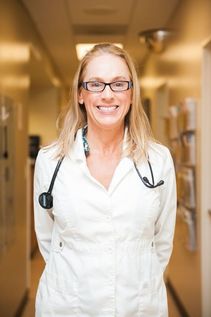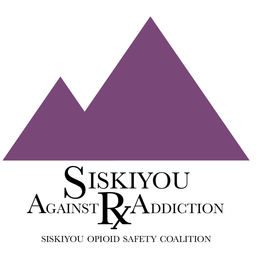 Guest Blogger: Monica Mais, MSN, FNP Family Nurse Practioner/Academic Detailer California Opioid Safety Network, Fairchild Medical Clinic NaRCAD Training Alumnus Tags: Detailing Visits, Opioid Safety, Rural AD Programs, Training In 2011, I went from 15 years as an Emergency Room nurse to a new role as a Family Nurse Practitioner in a rural healthcare setting. I couldn’t believe the amounts of prescribed opioids that were coming out of our little clinic—the average chronic pain patient was receiving 240 Morphine Equivalents/day (MEDs), and many of these patients had been receiving these medications for years without oversight. In 2013 I introduced an evidence-based protocol and policy for safe prescribing of Opiates for Chronic Non-Cancer Pain (CNCP).
However, patients who could not obtain opiates from our clinic quickly moved on to the clinic across town. This influx of opiate seeking patients was reason for concern from those receiving clinics. My colleagues and I opened our doors to neighboring clinics and providers and began sharing our policies and successes. Many other area clinics started adapting our policies to their own practice, reducing their opiate prescribing as well.  We formed a coalition called Siskiyou Against Rx Abuse (SARA), and based on our previous successes, we were all shocked to see data showing our county was among the highest opioid prescriptions per capita in California, and had a high overdose rate per capita, despite our efforts. Clearly, more needed to be done! Our coalition facilitator, Maggie Shepard, RN, along with our medical director, Dr. Sam Rabinowitz, and myself were all invited to attend training to become Academic Detailers in San Francisco with the San Francisco Department of Public Health, a partner with NaRCAD, the National Resource Center for Academic Detailing. We did scripting and role-playing throughout the training, learning the important social marketing and communication skills needed to conduct a personalized visit with a provider where the goal would be to change behaviors to continue to promote safe opioid prescribing, Naloxone, and Buprenorphine out to providers in our area. During the training, I was videotaped during a practice role-play, which was very helpful, as it reminded me to speak more slowly, and to organize my key messages and talking points. After the training, getting our detailing program into the field involved a step-by-step process. Here are important things to consider that have worked well for my detailing process:
I plan to continue AD throughout 2018. I believe we have experiences that we can share to encourage our colleagues to make positive changes in in their prescribing habits. Academic Detailing works due to mutual respect of one another’s experiences, professionalism, and willingness to receive new information—it’s an excellent way to foster change within a system! Biography
Monica Mais, MSN, FNP Family Nurse Practioner/Academic Detailer, Fairchild Medical Clinic Monica Mais is a Board Certified Family Nurse Practitioner working at an FQHC in Siskiyou County, located in far Northern California on the Oregon border. She is a founding member of Siskiyou Against Rx Abuse, member of the California Opioid Safety Network and an X-Waived prescriber, working with chronic pain and opioid dependent patients. As a former Emergency Room Nurse for 15 years, many of Monica’s shifts involved witnessing overdoses, drug-seeking behavior, violence, desperation, and healthcare worker burnout. It had been escalating every year to its current crisis level, and Monica wanted to be part of the solution to this heartbreaking epidemic. Questions on this piece for Monica Mais? Contact her at [email protected], or leave your thoughts in the discussion forum below. Comments are closed.
|
Highlighting Best PracticesWe highlight what's working in clinical education through interviews, features, event recaps, and guest blogs, offering clinical educators the chance to share successes and lessons learned from around the country & beyond. Search Archives
|

